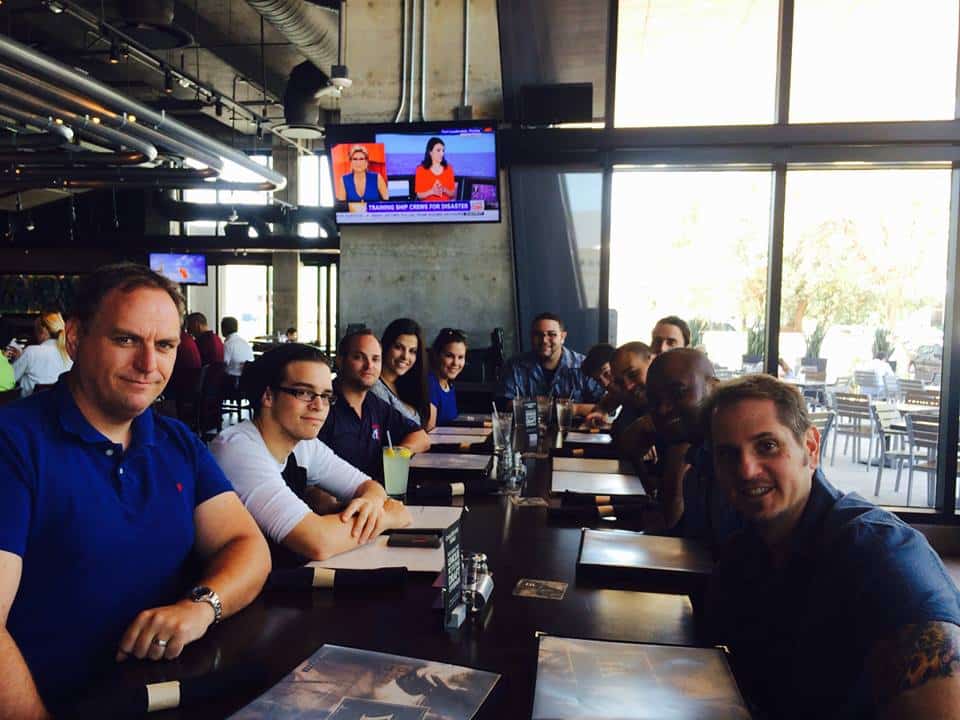Find a Job You Really Want In
Most of the time, you can apply the rules of resume writing to nearly every job and every industry. You might need to tweak it a bit to best fit your work experience and the position you’re applying for. Generally, a resume is a one-to-two-page overview of your professional history and skills to go alongside an application.
This isn’t always the case when you’re writing a resume for a federal position, however. Instead of fleshing out the information on your application, your federal resume often serves as most, if not all, of your application for these types of jobs. As a result, you’ll need to go about the writing process for this document differently than you normally would.
What Makes a Federal Resume Unique
Because your resume often serves as your application for a federal job and because the federal hiring processes are generally more stringent than usual, a federal resume is going to contain more information than you would usually put on a resume.
As a result, most federal resumes are about two to five pages long instead of one to two. They include more detailed information about your skills and accomplishments, as well as details about your past jobs. Often, hiring managers will look at your resume to see who your supervisor was, how many hours you worked, and even what your salary was.
You’ll also need to include more detailed information about yourself, such as the location you’d like to work and your citizenship status.
In addition, while it isn’t generally advised to include your references on a regular resume, it is a good thing to do on a federal resume.
Steps for Writing a Federal Resume
-
Read the entire job description carefully. Pay special attention to the “Duties Qualifications,” “How To Apply,” and “How You Will be Evaluated” sections. You need to make sure you meet every one of these requirements and then show that you do in your resume.
-
Add your basic personal information. This should include:
-
Your name
-
Your phone number(s)
-
Your personal email address
-
Your mailing address
-
Your citizenship status
-
Your status as a veteran
-
Your disability status, if applicable
-
Your status as a Peace Corps/AmeriCorps VISTA volunteer, if applicable
-
Your highest pay level in a previous federal job (GS grade)
You should also include the title and identification number of the job that you’re applying for.
-
-
List your work experience. You should include details about your responsibilities and accomplishments for each of your past positions. Be specific about numbers and results whenever possible to show the impact you had there.
You’ll also need to include the start and end dates you worked in a position, how many hours you worked each week, and the location of the company you worked for, including the ZIP code.
You can also include your salary and your supervisor’s name, contact information, and a note that it’s okay to contact them if you’d like. Try to include as much of this information as possible, as it will only help flesh you out as a candidate, and you won’t be disqualified based on this information if you include it.
When you’re listing your work experience, stick to jobs within the last ten years, and don’t be afraid to include volunteer work or other opportunities that gave you experience applicable to the position you’re applying for.
-
Talk about your education. Some people like to put this section before their work experience, especially if they’ve recently graduated, and either way is acceptable.
If you are looking to make your educational background more prominent than your work history, make sure you provide your relevant coursework to demonstrate your skills and experience further. You don’t need to list every class you ever took, but if there are any that are especially unique or directly relate to the job, be sure to mention them.
No matter how much emphasis you’re trying to put on your educational background, you should always include the schools you attended and the degrees (including minors) you obtained there, as well as the dates you attended.
If you have a concentration or were on your way toward a minor, list what that was and how many credit hours you put toward it.
Including your GPA is optional, but it can be helpful (especially if it’s good).
Here is some additional optional information you can include if you think it’ll help increase your chances of getting the position:
-
Honors received
-
Academic papers and projects
-
Notable presentations
-
-
Add any additional information that will help sell you as the best candidate for the position. While you aren’t required to include any of this information, you should if it’s at all relevant to the job you’re applying for. This is true even if it simply shows your initiative and leadership skills.
Here are some of the categories you can add:
-
Job-related training
-
Additional technical skills
-
Professional or academic affiliations
-
Professional publications
-
Awards
-
Leadership roles
-
Public speaking engagements
-
References
-
Security clearance level
-
Schedule availability
-
Preferred location
Be detailed in these sections, just as you are in your work history section. Include dates wherever possible, explain how that experience is relevant to the job if it isn’t immediately apparent, and mention your proficiency level in any additional skills you list.
-
-
Double-check your resume. If you can, have someone else who is good at checking for grammatical, spelling, and formatting errors proofread your resume for you. Making sure that it’s error-free is vital to getting through to the next round of the application process.
You should also comb through the job posting to ensure that you’ve clearly mentioned all of your qualifications that match those listed in the job description.
Finish by reading through your resume as if you’ve never seen it before. Ensure all of your bullet points clearly explain your efforts’ results and ask yourself if you’d be impressed or just confused if you were the hiring manager.
Tips for Writing a Federal Resume
-
Tailor your resume for different positions. This advice is applicable for any resume you write, but it’s especially important for a federal resume since you often won’t be submitting a separate application.
You can do this by including as many keywords for the position as possible. For example, if the job description says it wants someone with experience in project management, make sure you use the term “project management” in your resume to describe your experience in this area.
-
Be detailed, yet concise. Show that you understand the job and what the hiring managers are looking for in a candidate by including only information that speaks to why you’re the best person for the job.
Every word in your resume should serve a purpose, so avoid bogging it down with every project you’ve ever done.
Instead, go through each qualification listed on the job description and make sure you’ve demonstrated how you meet each one. Include details that will paint a clear picture of your credentials, and then delete any other fluff.
For example, saying that you have experience working with Microsoft Word is one thing, but sharing that you wrote and formatted weekly newsletters for the company on Microsoft Word gives hiring managers a much better idea of what you actually did.
However, you probably don’t need to explain that you did so on a 10-year-old keyboard that didn’t type the letter “n.” While interesting and indicative of your adaptability, save that anecdote for when an interviewer asks you about a challenge you overcame.
-
Create a basic resume to work from. While you should adjust your resume to reflect the particular job you’re applying for, that doesn’t mean you have to start from scratch every time.
Instead, use the USAJOBS resume builder to create a master version of your resume that you can tweak for each position you apply for. When you write your master copy, add as much information as possible since it’s easier to delete points in order to fit a specific job description than it is to add more.
Federal Job Opportunities
When you think of jobs that may require a federal resume, you may think of positions at the Capitol or in a high-profile organization such as the FBI or CIA. While it’s true that these jobs will require a federal resume, there are many more opportunities to work for the federal government than you might think:
-
Mathematics. From accounting to statistics, there are plenty of jobs available for mathematicians and computer scientists in the federal government.
-
Engineering. The federal government needs all kinds of engineers to work on and improve processes, infrastructures, and even military ships and planes. This includes computer and electronics engineers as well.
-
Human Resources. Yes, even the federal government needs HR reps. You could work as a civilian for the military or for another area that may interest you, such as the Department of Agriculture.
-
Business. If you’re skilled in negotiating and creating contracts, there is a place for you in nearly every department of the federal government, as they make purchases with contracts all the time.
-
Finance. The government needs plenty of auditors to make sure each department uses its resources wisely and ethically, so there are a wide variety of positions looking for your skill set.
-
Economics. Another position that nearly every department of the federal government needs to fill, economists are important for tracking the economy and creating solutions to address problems caused by its fluctuations.
-
Medicine. The federal government hires doctors and nurses to practice at locations such as Native American and veteran health centers and educate and advise government officials and the public.
-
Science. There are a wide variety of roles available to scientists of all kinds in the federal government. Whether you prefer to conduct research in a lab or to find the best ways to manage and protect our natural resources, the federal government relies on scientists in many ways.
-
Information Technology and Cybersecurity. Whether you’re simply helping an office or department keep their network running or are actively looking for ways to keep the country’s computer systems safe, there are a plethora of opportunities to work in IT and cybersecurity in the federal government.
-
Law and Law Enforcement. The federal government needs plenty of judges, public attorneys, police officers, and security officials. Even though these positions often have unique application processes, you’ll still need a federal resume.
-
International Relations. From interpreters to diplomats, there are several federal job opportunities available in this field.
Example Federal Resume
32545 Mechanical Engineer — GS-07
Martina Short
2222 W Main Street
Denver, CO 80001
Cell: 333-222-4444
Email: [email protected]Citizenship: U.S. Citizen
Veterans’ Preference: No
Highest GS Grade: 05
Security Clearance: Secret
Desired Location: Buckley AFB, COEmployment History
Mechanical Engineer
07/25/18 – Present, 40 hrs./week
The Boeing Company | 3333 S Western Ave. | Denver, CO 80001
Manager: David Wallace | 333-444-5555 | May contact.Responsibilities
Facilitated meetings between design engineers and inspection techs to make sure everything was operating smoothly.
Checked and finalized all part inspection reports for design division.
Worked with design team to troubleshoot design flaws with old and newly released parts.
Edited and optimized part plans before release to machine technicians for prototype creation.
Inspected prototypes for consistency with plans.
Accomplishments
Created and implemented code for streamlining inspection reports processes, saving 75 man hours per week and decreasing errors by 10%.
Received corporate recognition award for improved processes in January 2020.
Assisted with redesign of inspection process to decrease errors in prototype machining process by 15%.
Engineering Intern
08/15/17 – 05/25/18, 20 hrs./week
Lockheed Martin | 8877 NW Oak St. | Wichita, KS 33001
Manager: Ashley Thorpe | 111-444-9999 | May contact.Responsibilities
Assisted main design team with engine design project.
Created 30 AutoCAD plans for design team’s designs.
Peer-reviewed other interns’ AutoCAD designs and edited as needed.
Gave four tours a week to prospective interns.
Wrote biweekly reports on project statuses for design team.
Accomplishments
Received recognition from CEO for fast and accurate work in April 2018.
Created peer-review system within intern team of six that increased intern team’s speed of plan creation by 15% and accuracy by 8%.
Education
Wichita State University, Wichita, KS 33001
Bachelor of Science, Mechanical Engineering, Minor in Aerospace Engineering
Summa Cum Laude, May 2018
GPA: 4.0Relevant Coursework: Jet Engine Design, Statics and Dynamics, Fluids and Mechanics, Heat and Thermodynamics, Airplane Structures
Projects and Presentations
Senior project team of four successfully built and raced turbo engine-powered model plane that won first place for speed and reliability out of 25 teams.
Presented senior project at AIAA conference in January 2018.
Wichita State University Tech, Wichita, KS 33002
August 2013 – May 2014
Certifications Earned: AutoCAD Certification, NIMS Machine Technician Certification, AWS Welding CertificationJohn Brown High School, Wichita, KS 33003
High School Diploma
With Honors, May 2014
GPA: 4.0Additional Training
Improving Workplace Communication, Wichita State University, 2017
Jet Engine Design: Best Practices, AIAA Conference, 2017
Additional Skills
JavaScript (Proficient)
C++ (Proficient)
Microsoft Office Suite (Intermediate)
Volunteer Work
Wichita Food Bank. Wichita, KS, 33295, 2014-2018
Wichita State University humanitarian project in Kenya where we serviced, installed, and improved water wells and irrigation systems for nine rural communities. Nairobi, Kenya, May-July 2017
Kumon Math and Reading Center. Wichita, KS, 33563, 2013-2016
Affiliations
American Society of Mechanical Engineers, 2014-present
American Institute of Aeronautics and Astronautics, 2016-present
Additional References
Professional References
Dr. Clark Jones, Dean of the College of Engineering
Wichita State University, Wichita, KS 34578
[email protected]
222-555-7890Dr. Mary Albright, Professor of Aerospace Engineering
Wichita State University, Wichita, KS 34578
[email protected]
222-789-2345Personal References
Timothy Williams, Head Engineer, Lockheed Martin, Wichita, KS 33001
[email protected]
222-567-9898Amelia Wright, Coach, John Brown High School, Wichita, KS 33003
[email protected]
222-333-8901





